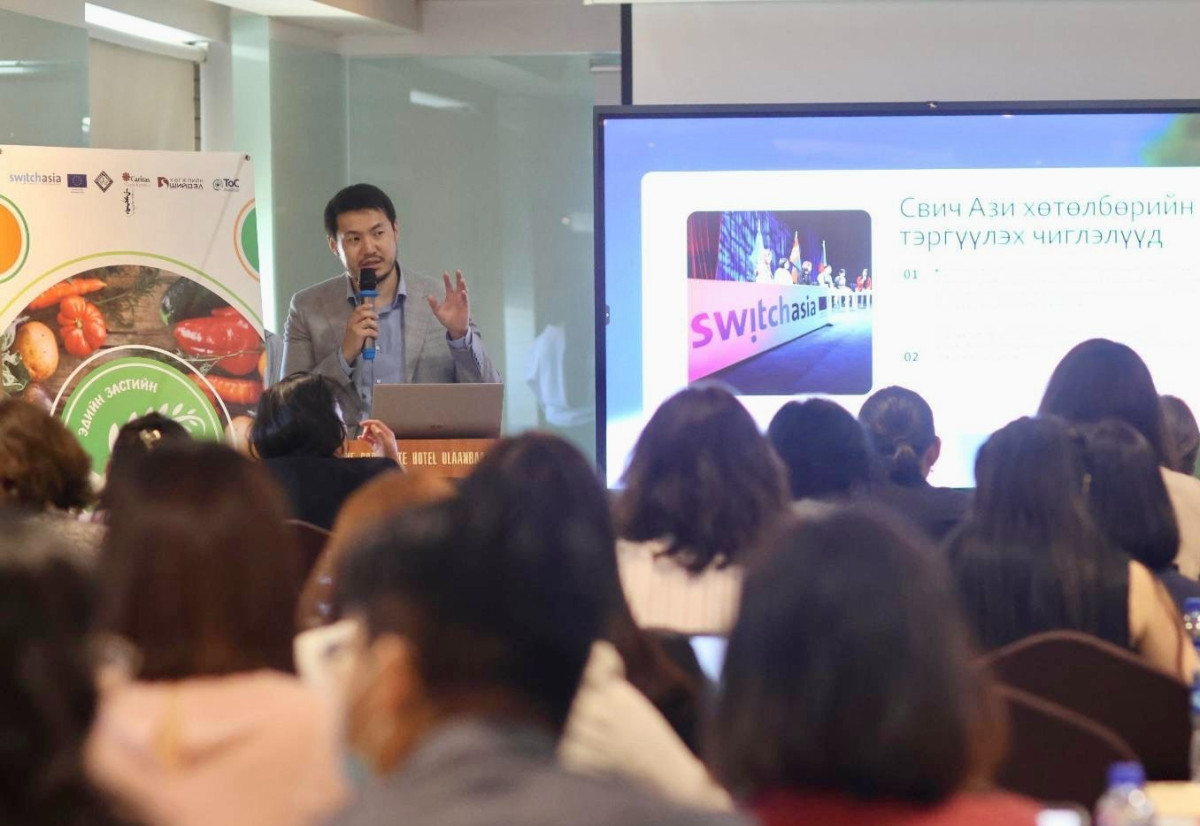Marking a significant stride in environmental sustainability, the EU – Switch Asia Programme is actively backing the integration of environmentally responsible practices within Mongolia's food, water, and beverage sector.
Published: Aug 8, 2023 Reading time: 3 minutes Share: Share an article
Ulaanbaatar -- Under the aegis of the "Switching on the Green Economy Project," a pivotal initiative aimed at fostering a circular economy and optimizing resource utilization, a specialized training program was inaugurated today. This course is designed to equip trainers with the knowledge and tools to educate small and medium-sized enterprises (SMEs), business associations, and vendors on the principles of circular economy, efficient resource management, eco-labeling, and certification.
The rigorous selection process yielded a cohort of 40 trainers out of 200 applicants coming from Ulaanbaatar, Erdenet Cities, and Selenge Province. This comprehensive training, spanning 4 days and divided into 2 sessions, encompasses a wide array of subjects, including a foundational understanding of circular economy dynamics, eco-labeling within a circular economy context, sustainable development, circular business models, and thorough analysis of both internal and external environmental factors.
“Recognizing the considerable environmental impact of the food, water, and beverage industry, there is an imperative need to accelerate poverty alleviation through the reduction of carbon emissions and the transition toward circular economic practices. This project affords SMEs the invaluable opportunity to glean insights from the innovative "Farm to Fork" principle championed by the European Commission, thus enabling the judicious conservation of natural resources. In this context, this bi-phase, 8-day training of trainers holds immense significance as it imparts the principles of sustainable practices and heralds a transformative event” said B. Mungunkhishig, Country Director for People in Need INGO in Mongolia.
In alignment with the "Switching on the Green Economy” Project funded by the SWITCH-Asia Programme amounting to 2.2 million euros, micro, small, and medium-scale producers and retailers engaged in the food, water, and beverage sectors will receive multifaceted support. This encompassing assistance aims to achieve the following goals:
• Mitigate the environmental footprint of SMEs through efficient resource management and the promotion of circular economy practices.
• Facilitate the eco-labeling and certification of products and services offered by SMEs and retailers.
• Enhance access to green finance solutions for these entities.
• Advocate for sustainable consumption patterns and sound production practices among consumers.
Underpinning the Switching on the Green Economy Project's framework, our ambition is to collaborate with 1,500 SMEs involved in food, water, and beverage production, engage with 30 business associations operating within this sector, and foster partnerships with 300 retailers. As we forge ahead, this initiative stands as a testament to the European Union's steadfast commitment to ushering in a more ecologically balanced future for Mongolia's business landscape.



